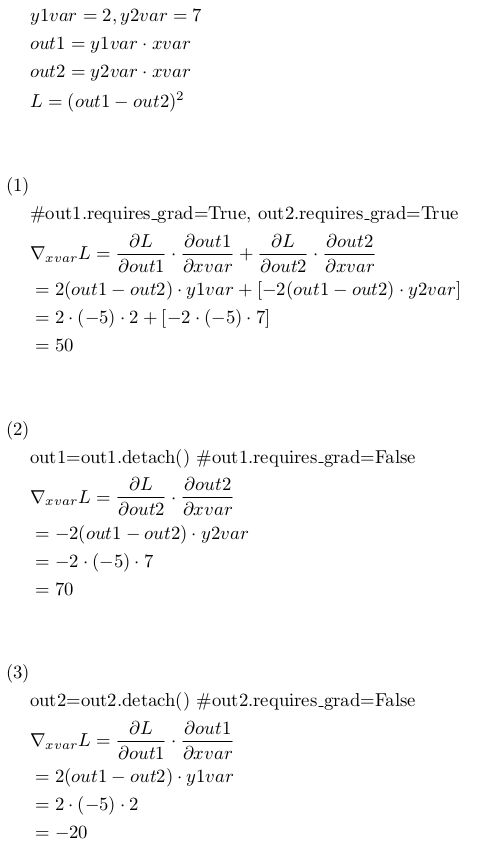- PyTorch使用教程- Tensor包
Loving_enjoy
论文pytorch人工智能
###PyTorch使用教程-Tensor包PyTorch是一个流行的深度学习框架,它提供了一个易于使用的API来创建和操作张量(Tensors)。张量是一个多维数组,类似于NumPy中的ndarray,但它是基于GPU的,支持自动求导。本文将详细介绍PyTorch中的Tensor包,包括张量的创建、运算、形状变换、索引与切片、以及重要的张量处理方式。####一、张量的创建在PyTorch中,可以
- 从零开始的 AI Infra 学习之路
SSS不知-道
MLSys人工智能深度学习pytorch
从零开始的AIInfra学习之路文章目录从零开始的AIInfra学习之路一、概述二、AI算法应用2.1机器学习2.2深度学习2.3LLM三、AI开发体系3.1编程语言四、AI训练框架&推理引擎4.1PyTorch4.2llama.cpp4.3vLLM五、AI编译&计算架构5.1CUDA5.2CANN六、AI硬件&体系结构6.1INVIDIAGPU6.2AscendNPU一、概述AIInfra(AI
- 【深度学习】Huber Loss详解
小小小小祥
深度学习人工智能算法职场和发展机器学习
文章目录1.HuberLoss原理详解2.Pytorch代码详解3.与MSELoss、MAELoss区别及各自优缺点3.1MSELoss均方误差损失3.2MAELoss平均绝对误差损失3.3HuberLoss4.总结4.1优化平滑4.2梯度较好4.3为什么说MSE是平滑的1.HuberLoss原理详解HuberLoss是一种结合了MSE(均方误差)与MAE(平均绝对误差)的损失函数,旨在克服两者的
- 小猿口算自动PK脚本
小黄编程快乐屋
人工智能python
大家好,我是小黄。近期,众多大学生炸鱼小猿口算APP,把一众小学生都快虐哭了,小黄听闻后,也跃跃欲试。对此小黄也参考网上的资料写了一个自动Pk的脚步。首先大家需要安装一个pytorch环境过程中,如果小伙伴对此不熟悉的话可以参考网上的相关教程。我们需要用到Tesseract-OCR文本识别。他的原理就是先截图,之后框选出比较大小的两个数字所在的区域,使用Tesseract-OCR识别出来后进行判断
- Pytorch详解-模型模块(RNN,CNN,FNN,LSTM,GRU,TCN,Transformer)
qq742234984
rnnpytorchcnn
Pytorch详解-模型模块Module¶meterModule初认识forward函数ParameterPytorch中的权重、参数和超参数Module容器-ContainersSequentialModuleListModuleDictParameterList&ParameterDict常用网络层LSTM输入和输出GRUConvolutionalLayers卷积层的基本概念常见的卷积
- 算力平台环境搭建实操
罗小黑的师傅
目标检测深度学习人工智能
提示:文章写完后,目录可以自动生成,如何生成可参考右边的帮助文档文章目录一、登录账号二、选择算力平台已有镜像或外部导入镜像创建开发环境三、配置环境1.修改算力平台密码2.配置代理(1)进入bashrc配置文件(2)在文本末尾添加(3)重新运行bashrc配置文件3.安装miniconda方法1:离线下载方法2:在线下载4.pip换源5.创建并激活虚拟环境6.安装pytorch7.额外包的安装,都可
- Pytorch 三小时极限入门教程
power-辰南
人工智能深度学习pytorch人工智能
一、引言在当今的人工智能领域,深度学习占据了举足轻重的地位。而Pytorch作为一款广受欢迎的深度学习框架,以其简洁、灵活的特性,吸引了大量开发者投身其中。无论是科研人员探索前沿的神经网络架构,还是工程师将深度学习技术落地到实际项目,Pytorch都提供了强大的支持。本教程将带你从零基础开始,一步步深入了解Pytorch的核心知识,助你顺利踏上深度学习的征程。二、Pytorch基础环境搭建安装An
- [python]通过whl文件安装torchvision和torchaudio及国内whl文件下载地址汇总
萌萌哒240
环境配置python开发语言
要通过.whl文件安装torchvision和torchaudio,你需要先确保你已经安装了与这些库兼容的PyTorch版本。以下是一个详细的步骤指南,帮助你通过.whl文件安装这些库。1.安装PyTorch首先,确保你已经安装了PyTorch。你可以从PyTorch的官方网站获取适合你系统的安装命令例如,如果你使用的是CUDA11.3和Python3.8,你可以使用以下命令安装PyTorch:p
- python如何安装torch_Python安装torch模块报错处理
红烧橘子皮
python如何安装torch
Python安装torch模块报错处理前言安装报错解决查找文档解决方案安装torch等待安装完成安装torchvision提示安装完成总结前言因python项目上线,需要在海外服务器上安装指定torch模块安装根据官网https://pytorch.org/安装提示,执行pip3install即可。pip3installtorchtorchvision但安装过程中发生报错,尝试多次执行pip3in
- 3DUnetCNN 项目常见问题解决方案
魏纯漫
3DUnetCNN项目常见问题解决方案3DUnetCNNPytorch3DU-NetConvolutionNeuralNetwork(CNN)designedformedicalimagesegmentation项目地址:https://gitcode.com/gh_mirrors/3d/3DUnetCNN项目基础介绍3DUnetCNN是一个基于PyTorch的3DU-Net卷积神经网络(CNN)
- 推荐3D UNet实现:深度学习3D体素数据语义分割的利器!
滑辰煦Marc
推荐3DUNet实现:深度学习3D体素数据语义分割的利器!去发现同类优质开源项目:https://gitcode.com/在这个快速发展的深度学习时代,3DUNet已经成为3D图像处理领域中不可或缺的工具,尤其在医疗影像分析和3D物体识别等任务上展现出强大的潜力。这个开源项目为我们提供了一个高效、灵活的3DUNet实现,支持Tensorflow、PyTorch和Chainer三种主流深度学习框架。
- 3D U-Net CNN医学图像分割项目教程
尤辰城Agatha
3DU-NetCNN医学图像分割项目教程3DUnetCNNPytorch3DU-NetConvolutionNeuralNetwork(CNN)designedformedicalimagesegmentation项目地址:https://gitcode.com/gh_mirrors/3d/3DUnetCNN1.项目介绍3DU-NetCNN是由Ellisdg开发的Python实现,专门用于医学图像
- PyTorch机器学习与深度学习技术方法
Teacher.chenchong
机器学习python开发语言
近年来,随着AlphaGo、无人驾驶汽车、医学影像智慧辅助诊疗、ImageNet竞赛等热点事件的发生,人工智能迎来了新一轮的发展浪潮。尤其是深度学习技术,在许多行业都取得了颠覆性的成果。另外,近年来,Pytorch深度学习框架受到越来越多科研人员的关注和喜爱。Python基础知识串讲1、Python环境搭建(Python软件下载、安装与版本选择;PyCharm下载、安装;Python之HelloW
- Pytorch实现:LSTM-火灾温度预测
骑猪玩狗
pytorchlstm人工智能
本文为365天深度学习训练营中的学习记录博客原作者:K同学啊前期工作语言环境:Python3.9.18编译器:JupyterLab深度学习环境:Pytorch1.12.11.设置GPUimporttorchimporttorch.nnasnnimporttorchvisionfromtorchvisionimporttransforms,datasetsimportos,PIL,pathlibde
- 深度学习项目--基于LSTM的火灾预测研究(pytorch实现)
羊小猪~~
RNNLSTM神经网络案例机器学习/数据分析案例深度学习lstmpytorch人工智能机器学习rnngru
本文为365天深度学习训练营中的学习记录博客原作者:K同学啊前言LSTM模型一直是一个很经典的模型,这个模型当然也很复杂,一般需要先学习RNN、GRU模型之后再学,GRU、LSTM的模型讲解将在这两天发布更新,其中:深度学习基础–一文搞懂RNN深度学习基础–GRU学习笔记(李沐《动手学习深度学习》)这一篇:是基于LSTM模型火灾预测研究,讲述了如何构建时间数据、模型如何构建、pytorch中LST
- 每天五分钟深度学习框架pytorch:基于vgg块搭建VGG卷积神经网络
每天五分钟玩转人工智能
深度学习框架pytorch深度学习pytorchcnnVGG卷积神经网络
本文重点前面我们使用pytorch搭建了vgg块,本文我们使用vgg块搭建卷积神经网络VGG16,我们先来看一下vgg16的模型结构是什么样的:搭建vgg16importtorchfromtorchimportnndefvgg_block(num_convs,in_channels,out_channels):net=[nn.Conv2d(in_channels,out_channels,kern
- 探索极致AI性能:昇腾NPU与PyTorch的完美融合 —— Ascend Extension for PyTorch
尤琦珺Bess
探索极致AI性能:昇腾NPU与PyTorch的完美融合——AscendExtensionforPyTorch去发现同类优质开源项目:https://gitcode.com/项目简介在人工智能领域,高效灵活的框架与强大的硬件加速器是实现先进算法的关键组合。AscendExtensionforPyTorch插件,即torch_npu,正是这样一个解决方案,它无缝对接PyTorch框架,将华为昇腾AI处
- 深度学习 Pytorch 张量(Tensor)的创建和常用方法
白白糖
深度学习pytorchpython深度学习pytorch人工智能
1张量的基本创建及其类型和Numpy中的array一样,张量的本质也是结构化地组织了大量的数据。并且在实际操作中,张量的创建和基本功能也与其非常类似。1.1张量(Tensor)函数创建方法张量的最基本创建方法和Numpy中创建Array的格式一致。#Numpy创建数组importnumpyasnp#导入numpya=np.array([1,2,3])importtorch#首次使用,导入torch
- PyTorch 神经协同过滤 (NCF) 推荐系统教程
陌北v1
pytorchpythonNCF神经协同过滤
目录教程概述1.神经协同过滤模型概述NCF模型的主要组成部分:2.数据加载与预处理3.定义神经协同过滤模型4.训练模型5.模型评估6.推荐物品7.完整示例8.总结在本教程中,我们将使用PyTorch实现一个神经协同过滤(NeuralCollaborativeFiltering,简称NCF)推荐系统。神经协同过滤是一种基于深度学习的推荐系统模型,通过学习用户和物品的嵌入表示来预测用户对物品的评分,进
- PyTorch 中的 expand 操作详解:用法、原理与技巧
专业发呆业余科研
深度模型底层原理pytorch人工智能python深度学习机器学习
在使用PyTorch进行深度学习时,张量形状与广播机制常常是让初学者感到困惑的地方。我们需要时常面对多维张量,并在批量、通道、空间位置等多个维度之间做运算。如果能熟练掌握各种维度变换操作——包括unsqueeze、expand、view/reshape、transpose/permute等,可以帮助我们灵活地操纵张量,写出高效而简洁的矩阵化(vectorized)代码。本文将重点聚焦于expand
- MindIE+MindFormers推理方案指导
人工智能pytorch
组件介绍CANNCANN是什么异构计算架构CANN(ComputeArchitectureforNeuralNetworks)是昇腾针对AI场景推出的异构计算架构,向上支持多种AI框架,包括MindSpore、PyTorch、TensorFlow等,向下服务AI处理器与编程,发挥承上启下的关键作用,是提升昇腾AI处理器计算效率的关键平台。同时针对多样化应用场景,提供多层次编程接口,支持用户快速构建
- pytorch基操01-常用Tensor创建方法汇总
von Libniz
Python机器学习机器学习深度学习人工智能
目录1.Tensor的创建1.1使用torch.Tensor1.2使用torch.eye1.3全0或全1的tensor1.4根据分布随机生成tensor1.4.1torch.rand1.4.2torch.randn1.4.3torch.normal1.4.4torch.Tensor.uniform_1.5生成序列tensor1.5.1torch.arange(a,b,step)1.5.2torch
- Pytorch实现猫狗分类
NoKnowovo
Pythonpytorch分类人工智能
在进行编码之前,确保已经安装好Pytorch以及相关依赖环境模型定义构建构建一个较为简单的卷积神经网络模型#定义神经网络模型classCatDogClassifier(nn.Module):def__init__(self):super(CatDogClassifier,self).__init__()self.conv1=nn.Conv2d(3,16,kernel_size=5,stride=1
- 开源人工智能模型框架:探索与实践
CodeJourney.
人工智能能源
摘要本文深入探讨了开源人工智能模型框架,旨在为研究人员、开发者及相关从业者提供全面的理解与参考。通过对多个主流开源框架,如TensorFlow、PyTorch、Keras、Detectron2、OpenCV、HuggingFaceTransformers、AllenNLP、MindSpore和Fastai的详细分析,阐述其特点、应用场景、优势与不足,并结合具体示例说明其使用方法,同时配以相关架构图
- 华为昇腾AI处理器,atc模型转换和推理过程,华为的CANN库对标的是NVIDIA的cuda,所以在华为昇腾AI处理器上安装了CANN后,就可以直接使用pytorch了,以及推理框架(参考学习)
鼾声鼾语
嵌入式硬件学习stm32python数据库
1,模型转换atc模型转换模型转换如图参考链接如下:https://toscode.mulanos.cn/ascend/samples/tree/master/inference/modelInference/sampleResnetQuickStart/cpp2,推理运行,这里需要注意用到了infer,有点类似的pytorch对模型的加载使用model=InferSession(0,model_
- 每天五分钟深度学习框架pytorch:快速搭建VGG网络的基础模块VGG块
每天五分钟玩转人工智能
深度学习框架pytorch深度学习pytorch网络卷积神经网络卷积层人工智能
本文重点前面我们介绍了VGG神经网络,我们知道VGG是由许多的VGG块构成,那么本文我们将使用pytorch搭建VGG块代码实现:importtorchfromtorchimportnndefvgg_block(num_convs,in_channels,out_channels):net=[nn.Conv2d(in_channels,out_channels,kernel_size=3,padd
- 探秘6-DoF GraspNet:面向对象操纵的变分抓取生成
庞锦宇
探秘6-DoFGraspNet:面向对象操纵的变分抓取生成项目地址:https://gitcode.com/gh_mirrors/py/pytorch_6dof-graspnet在人工智能和机器人领域,我们正逐步接近让机器模拟人类的手部动作,实现精准的六自由度(6-DoF)物体抓取。6-DoFGraspNet是一项革新性的技术,现在,这个强大的工具已有了PyTorch实现。本文将详细介绍这一开源项
- PyTorch建模与应用:从深度学习到大模型
屿小夏
书籍推荐深度学习pytorch人工智能
文章目录一、内容简介二、值得一读1.从基础到深入,适合不同层次的读者2.丰富的实战案例3.全面的数据处理与模型构建三、适用人群1.AI技术初学者2.在校学生和从业者3.培训机构和高校教学四、总结一、内容简介《动手学PyTorch建模与应用:从深度学习到大模型》是一本从零基础上手深度学习和大模型的PyTorch实战指南。全书共11章,内容涵盖了从深度学习的基础概念到大语言模型的应用。第1章介绍了深度
- PyTorch FlexAttention技术实践:基于BlockMask实现因果注意力与变长序列处理
本文介绍了如何利用torch2.5及以上版本中新引入的FlexAttention和BlockMask功能来实现因果注意力机制与填充输入的处理。鉴于目前网络上缺乏关于FlexAttention处理填充输入序列的完整代码示例和技术讨论,本文将详细阐述一种实现方法,该方法同时涵盖了因果注意力机制的实现。本文不会详细讨论FlexAttention的理论基础,如需了解更多技术细节,建议参考PyTorch官方
- 报错解决:undefined symbol: _ZN15TracebackLoggerC1EPKc, version libcudnn_ops_infer.so.8
打工人你好
python
搭建resemble-enhance这个项目的过程中,在Ubuntu20.04的机器上跑,报错如下:undefinedsymbol:_ZN15TracebackLoggerC1EPKc,versionlibcudnn_ops_infer.so.8这个错误是在NVIDIAGPU上使用PyTorch2.1.2和cuDNN12.1时使用torch.nn.Conv2d时出现符号查找错误,这意味着PyTor
- Java序列化进阶篇
g21121
java序列化
1.transient
类一旦实现了Serializable 接口即被声明为可序列化,然而某些情况下并不是所有的属性都需要序列化,想要人为的去阻止这些属性被序列化,就需要用到transient 关键字。
- escape()、encodeURI()、encodeURIComponent()区别详解
aigo
JavaScriptWeb
原文:http://blog.sina.com.cn/s/blog_4586764e0101khi0.html
JavaScript中有三个可以对字符串编码的函数,分别是: escape,encodeURI,encodeURIComponent,相应3个解码函数:,decodeURI,decodeURIComponent 。
下面简单介绍一下它们的区别
1 escape()函
- ArcgisEngine实现对地图的放大、缩小和平移
Cb123456
添加矢量数据对地图的放大、缩小和平移Engine
ArcgisEngine实现对地图的放大、缩小和平移:
个人觉得是平移,不过网上的都是漫游,通俗的说就是把一个地图对象从一边拉到另一边而已。就看人说话吧.
具体实现:
一、引入命名空间
using ESRI.ArcGIS.Geometry;
using ESRI.ArcGIS.Controls;
二、代码实现.
- Java集合框架概述
天子之骄
Java集合框架概述
集合框架
集合框架可以理解为一个容器,该容器主要指映射(map)、集合(set)、数组(array)和列表(list)等抽象数据结构。
从本质上来说,Java集合框架的主要组成是用来操作对象的接口。不同接口描述不同的数据类型。
简单介绍:
Collection接口是最基本的接口,它定义了List和Set,List又定义了LinkLi
- 旗正4.0页面跳转传值问题
何必如此
javajsp
跳转和成功提示
a) 成功字段非空forward
成功字段非空forward,不会弹出成功字段,为jsp转发,页面能超链接传值,传输变量时需要拼接。接拼接方式list.jsp?test="+strweightUnit+"或list.jsp?test="+weightUnit+&qu
- 全网唯一:移动互联网服务器端开发课程
cocos2d-x小菜
web开发移动开发移动端开发移动互联程序员
移动互联网时代来了! App市场爆发式增长为Web开发程序员带来新一轮机遇,近两年新增创业者,几乎全部选择了移动互联网项目!传统互联网企业中超过98%的门户网站已经或者正在从单一的网站入口转向PC、手机、Pad、智能电视等多端全平台兼容体系。据统计,AppStore中超过85%的App项目都选择了PHP作为后端程
- Log4J通用配置|注意问题 笔记
7454103
DAOapachetomcatlog4jWeb
关于日志的等级 那些去 百度就知道了!
这几天 要搭个新框架 配置了 日志 记下来 !做个备忘!
#这里定义能显示到的最低级别,若定义到INFO级别,则看不到DEBUG级别的信息了~!
log4j.rootLogger=INFO,allLog
# DAO层 log记录到dao.log 控制台 和 总日志文件
log4j.logger.DAO=INFO,dao,C
- SQLServer TCP/IP 连接失败问题 ---SQL Server Configuration Manager
darkranger
sqlcwindowsSQL ServerXP
当你安装完之后,连接数据库的时候可能会发现你的TCP/IP 没有启动..
发现需要启动客户端协议 : TCP/IP
需要打开 SQL Server Configuration Manager...
却发现无法打开 SQL Server Configuration Manager..??
解决方法: C:\WINDOWS\system32目录搜索framedyn.
- [置顶] 做有中国特色的程序员
aijuans
程序员
从出版业说起 网络作品排到靠前的,都不会太难看,一般人不爱看某部作品也是因为不喜欢这个类型,而此人也不会全不喜欢这些网络作品。究其原因,是因为网络作品都是让人先白看的,看的好了才出了头。而纸质作品就不一定了,排行榜靠前的,有好作品,也有垃圾。 许多大牛都是写了博客,后来出了书。这些书也都不次,可能有人让为不好,是因为技术书不像小说,小说在读故事,技术书是在学知识或温习知识,有些技术书读得可
- document.domain 跨域问题
avords
document
document.domain用来得到当前网页的域名。比如在地址栏里输入:javascript:alert(document.domain); //www.315ta.com我们也可以给document.domain属性赋值,不过是有限制的,你只能赋成当前的域名或者基础域名。比如:javascript:alert(document.domain = "315ta.com");
- 关于管理软件的一些思考
houxinyou
管理
工作好多看年了,一直在做管理软件,不知道是我最开始做的时候产生了一些惯性的思维,还是现在接触的管理软件水平有所下降.换过好多年公司,越来越感觉现在的管理软件做的越来越乱.
在我看来,管理软件不论是以前的结构化编程,还是现在的面向对象编程,不管是CS模式,还是BS模式.模块的划分是很重要的.当然,模块的划分有很多种方式.我只是以我自己的划分方式来说一下.
做为管理软件,就像现在讲究MVC这
- NoSQL数据库之Redis数据库管理(String类型和hash类型)
bijian1013
redis数据库NoSQL
一.Redis的数据类型
1.String类型及操作
String是最简单的类型,一个key对应一个value,string类型是二进制安全的。Redis的string可以包含任何数据,比如jpg图片或者序列化的对象。
Set方法:设置key对应的值为string类型的value
- Tomcat 一些技巧
征客丶
javatomcatdos
以下操作都是在windows 环境下
一、Tomcat 启动时配置 JAVA_HOME
在 tomcat 安装目录,bin 文件夹下的 catalina.bat 或 setclasspath.bat 中添加
set JAVA_HOME=JAVA 安装目录
set JRE_HOME=JAVA 安装目录/jre
即可;
二、查看Tomcat 版本
在 tomcat 安装目
- 【Spark七十二】Spark的日志配置
bit1129
spark
在测试Spark Streaming时,大量的日志显示到控制台,影响了Spark Streaming程序代码的输出结果的查看(代码中通过println将输出打印到控制台上),可以通过修改Spark的日志配置的方式,不让Spark Streaming把它的日志显示在console
在Spark的conf目录下,把log4j.properties.template修改为log4j.p
- Haskell版冒泡排序
bookjovi
冒泡排序haskell
面试的时候问的比较多的算法题要么是binary search,要么是冒泡排序,真的不想用写C写冒泡排序了,贴上个Haskell版的,思维简单,代码简单,下次谁要是再要我用C写冒泡排序,直接上个haskell版的,让他自己去理解吧。
sort [] = []
sort [x] = [x]
sort (x:x1:xs)
| x>x1 = x1:so
- java 路径 配置文件读取
bro_feng
java
这几天做一个项目,关于路径做如下笔记,有需要供参考。
取工程内的文件,一般都要用相对路径,这个自然不用多说。
在src统计目录建配置文件目录res,在res中放入配置文件。
读取文件使用方式:
1. MyTest.class.getResourceAsStream("/res/xx.properties")
2. properties.load(MyTest.
- 读《研磨设计模式》-代码笔记-简单工厂模式
bylijinnan
java设计模式
声明: 本文只为方便我个人查阅和理解,详细的分析以及源代码请移步 原作者的博客http://chjavach.iteye.com/
package design.pattern;
/*
* 个人理解:简单工厂模式就是IOC;
* 客户端要用到某一对象,本来是由客户创建的,现在改成由工厂创建,客户直接取就好了
*/
interface IProduct {
- SVN与JIRA的关联
chenyu19891124
SVN
SVN与JIRA的关联一直都没能装成功,今天凝聚心思花了一天时间整合好了。下面是自己整理的步骤:
一、搭建好SVN环境,尤其是要把SVN的服务注册成系统服务
二、装好JIRA,自己用是jira-4.3.4破解版
三、下载SVN与JIRA的插件并解压,然后拷贝插件包下lib包里的三个jar,放到Atlassian\JIRA 4.3.4\atlassian-jira\WEB-INF\lib下,再
- JWFDv0.96 最新设计思路
comsci
数据结构算法工作企业应用公告
随着工作流技术的发展,工作流产品的应用范围也不断的在扩展,开始进入了像金融行业(我已经看到国有四大商业银行的工作流产品招标公告了),实时生产控制和其它比较重要的工程领域,而
- vi 保存复制内容格式粘贴
daizj
vi粘贴复制保存原格式不变形
vi是linux中非常好用的文本编辑工具,功能强大无比,但对于复制带有缩进格式的内容时,粘贴的时候内容错位很严重,不会按照复制时的格式排版,vi能不能在粘贴时,按复制进的格式进行粘贴呢? 答案是肯定的,vi有一个很强大的命令可以实现此功能 。
在命令模式输入:set paste,则进入paste模式,这样再进行粘贴时
- shell脚本运行时报错误:/bin/bash^M: bad interpreter 的解决办法
dongwei_6688
shell脚本
出现原因:windows上写的脚本,直接拷贝到linux系统上运行由于格式不兼容导致
解决办法:
1. 比如文件名为myshell.sh,vim myshell.sh
2. 执行vim中的命令 : set ff?查看文件格式,如果显示fileformat=dos,证明文件格式有问题
3. 执行vim中的命令 :set fileformat=unix 将文件格式改过来就可以了,然后:w
- 高一上学期难记忆单词
dcj3sjt126com
wordenglish
honest 诚实的;正直的
argue 争论
classical 古典的
hammer 锤子
share 分享;共有
sorrow 悲哀;悲痛
adventure 冒险
error 错误;差错
closet 壁橱;储藏室
pronounce 发音;宣告
repeat 重做;重复
majority 大多数;大半
native 本国的,本地的,本国
- hibernate查询返回DTO对象,DTO封装了多个pojo对象的属性
frankco
POJOhibernate查询DTO
DTO-数据传输对象;pojo-最纯粹的java对象与数据库中的表一一对应。
简单讲:DTO起到业务数据的传递作用,pojo则与持久层数据库打交道。
有时候我们需要查询返回DTO对象,因为DTO
- Partition List
hcx2013
partition
Given a linked list and a value x, partition it such that all nodes less than x come before nodes greater than or equal to x.
You should preserve the original relative order of th
- Spring MVC测试框架详解——客户端测试
jinnianshilongnian
上一篇《Spring MVC测试框架详解——服务端测试》已经介绍了服务端测试,接下来再看看如果测试Rest客户端,对于客户端测试以前经常使用的方法是启动一个内嵌的jetty/tomcat容器,然后发送真实的请求到相应的控制器;这种方式的缺点就是速度慢;自Spring 3.2开始提供了对RestTemplate的模拟服务器测试方式,也就是说使用RestTemplate测试时无须启动服务器,而是模拟一
- 关于推荐个人观点
liyonghui160com
推荐系统关于推荐个人观点
回想起来,我也做推荐了3年多了,最近公司做了调整招聘了很多算法工程师,以为需要多么高大上的算法才能搭建起来的,从实践中走过来,我只想说【不是这样的】
第一次接触推荐系统是在四年前入职的时候,那时候,机器学习和大数据都是没有的概念,什么大数据处理开源软件根本不存在,我们用多台计算机web程序记录用户行为,用.net的w
- 不间断旋转的动画
pangyulei
动画
CABasicAnimation* rotationAnimation;
rotationAnimation = [CABasicAnimation animationWithKeyPath:@"transform.rotation.z"];
rotationAnimation.toValue = [NSNumber numberWithFloat: M
- 自定义annotation
sha1064616837
javaenumannotationreflect
对象有的属性在页面上可编辑,有的属性在页面只可读,以前都是我们在页面上写死的,时间一久有时候会混乱,此处通过自定义annotation在类属性中定义。越来越发现Java的Annotation真心很强大,可以帮我们省去很多代码,让代码看上去简洁。
下面这个例子 主要用到了
1.自定义annotation:@interface,以及几个配合着自定义注解使用的几个注解
2.简单的反射
3.枚举
- Spring 源码
up2pu
spring
1.Spring源代码
https://github.com/SpringSource/spring-framework/branches/3.2.x
注:兼容svn检出
2.运行脚本
import-into-eclipse.bat
注:需要设置JAVA_HOME为jdk 1.7
build.gradle
compileJava {
sourceCompatibilit
- 利用word分词来计算文本相似度
yangshangchuan
wordword分词文本相似度余弦相似度简单共有词
word分词提供了多种文本相似度计算方式:
方式一:余弦相似度,通过计算两个向量的夹角余弦值来评估他们的相似度
实现类:org.apdplat.word.analysis.CosineTextSimilarity
用法如下:
String text1 = "我爱购物";
String text2 = "我爱读书";
String text3 =
